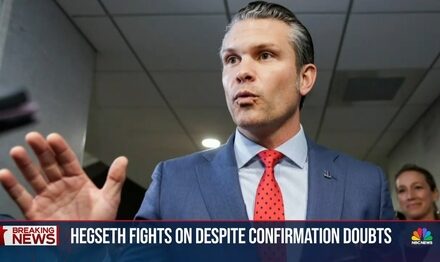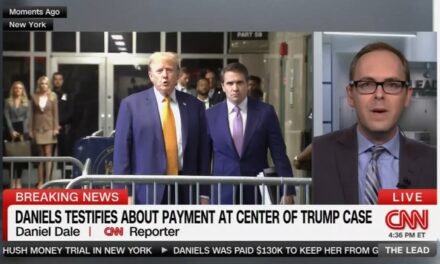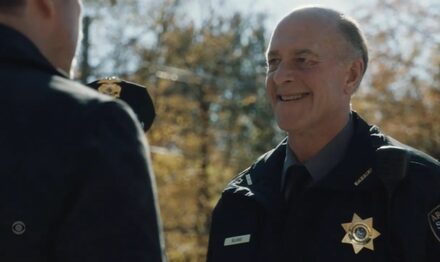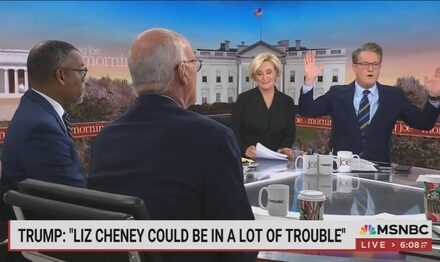We support our Publishers and Content Creators. You can view this story on their website by CLICKING HERE.
When Jimmy Carter lost the White House in a landslide to Ronald Reagan in November 1980, there was no sugar-coating his failures. Domestically, the country reeled from high inflation, high interest rates, an early 1980 recession that cost more than one million jobs, an energy crisis, and a dispiriting sense that America’s best days were behind us.
Internationally, from Nicaragua to Afghanistan, the U.S. seemed to be losing ground to the Soviet Union. The Islamic revolution in Iran was a massive strategic setback that still threatens us today, and the 444-day long hostage crisis was an abject humiliation that could not be reconciled with the image of the United States as a major superpower.
The number of Americans who told Gallup they were “satisfied with the way things are going in the U.S.” fell to just 12 percent in July 1979, an historic low not reached again until the depths of the financial crisis in October 2008. Carter’s job approval fell to an abysmal 28% in the summer of 1979; the next year, his attempt at re-election marked the worst showing for an incumbent since Herbert Hoover in 1932.
Yet liberal journalists were far more approving of Carter than the public he disappointed. The Media Elite surveys found that four out of five elite journalists said they had voted for Carter over Gerald Ford in 1976, an election Carter won by just two points. A different survey, of newspaper reporters, found that in 1980 journalists still preferred Carter over Reagan by a two-to-one margin, even as the public handed Reagan a 10-point landslide.
So with a conservative Republican in the White House, it didn’t take long before the media began rehabilitating the public image of the unpopular and defeated 39th President. As memories of the 1970s dimmed, journalists talked about Carter as the country’s “best former President,” the “world’s foremost statesman,” and even a “jazzed superhero” performing good deeds around the globe.
Instead of negative headlines about inflation and hostages, reporters treated the ex-President to softball questions such as “what is the secret, the magic of Jimmy Carter.” The decades-long good press has done its job — a late 2022 YouGov survey found nearly four times as many Americans now say they like Carter (58%) vs dislike him (15%).
While the popular and successful Reagan and his legacy were denigrated by the media during his retirement, liberal journalists have spent decades lavishing praise on Carter. From the MRC’s archives, a flavor of the coverage of the past thirty years:
■ “Perhaps the Democrat who best personifies this republic of virtue is former President Jimmy Carter. His reputation burnished by the elevated tone of his retirement, Carter would actually bring to the task energy, integrity and his legendary distaste for congressional business as usual. He could even boast a made-to-order campaign slogan: ‘After the Wright stuff, why not the best?’”
— Time Senior Writer and former Carter Administration official Margaret Carlson recommending Jimmy Carter follow the disgraced Jim Wright as next Speaker of the House, June 5, 1989 issue.■ “While Reagan peddles his time and talents to the highest bidder and Gerald Ford perfects his putt and Richard Nixon struggles to gain a toehold in history, Carter, like some jazzed superhero, circles the globe at 30,000 ft., seeking opportunities to Do Good.”
— Stanley Cloud, Time Washington Bureau Chief, September 11, 1989 issue.■ “And finally President Carter, you are now considered one of the world’s foremost statesmen. You’ve been called the best ex-President this country has ever had. Your reputation has been bolstered tremendously since you left office. How does that make you feel?”
— Today co-host Katie Couric to Jimmy Carter, November 13, 1991.
■ Anchor Brian Williams: “Is it fair to call him the best former President in, at minimum, modern American history, and perhaps, well, I guess, the last 200 years?”
Historian Marshall Frady: “Which embraces all presidencies, I think. Absolutely.”
— Exchange on CNBC’s The News with Brian Williams, Oct. 11, 2002.■ “There is hardly a troubled place in the world he hasn’t visited, worked in, in a quest to bring peace and spread democratic values….In many places, dusty and difficult places, James Earl Carter has brought hope and dispelled, as well as anyone alive these days, the vision of the ugly American.”
— Anchor Aaron Brown on CNN’s NewsNight, October 11, 2002.■ “President Carter’s crowning achievement, of course, the Camp David Accords, designed to forge peace in the Middle East. Unfortunately, that seems like a distant memory, but it’s so nice to see former President Jimmy Carter honored this way….It’s a terrific honor for him for all the work he did while he was President and, of course, he is considered by many as one of the finest former Presidents this country has ever seen.”
— NBC’s Katie Couric on the December 10, 2002 Today.■ Host Chris Matthews: “It seems to me Carter was dead on, on the need for energy sufficiency and dealing with the energy conservation, putting on a sweater, lowering the thermostat. All of those things made sense. He was right about the problem of nuclear proliferation, of arms getting to countries like Iran. He’s way ahead of his time on that. And also his concern for human rights. Right? So he was right, but?”
The New Yorker’s Hendrik Hertzberg: “Well he was, in this particular speech…he was sort of a prophet. He spoke as a prophet. And, and I mean by that, not as someone who is predicting the future, but as someone who is diagnosing, diagnosing the national soul.”
— Segment marking the 30th anniversary of Jimmy Carter’s “malaise” speech, MSNBC’s Hardball, July 15, 2009.
■ Correspondent Lesley Stahl: “When all is said and done — and many will be surprised to hear this — Jimmy Carter got more of his programs passed than Reagan and Nixon, Ford, Bush 1, Clinton or Bush 2.”
Former President Jimmy Carter: “I had the best batting average in the Congress in recent history of any President, except Lyndon Johnson.”…
Stahl: “A lot of critics of yours, when you were President, say that you’ve been a fantastic ex-President. You hear that all the time.”
Carter: “I don’t mind that.”
— CBS’s 60 Minutes, September 19, 2010.■ “I love Jimmy Carter! Jimmy Carter is so honest and out there. You know sometimes, I hear people say, ‘Oh, Obama, his term could become like Jimmy Carter’s.’ Yeah, I wish. You know, Jimmy Carter did some real bold things, like returning the Panama Canal. Can you see a president trying to do that today? Or, or getting on national television and telling the American people that they’re lazy and they’re using too much energy?…I think this country needs a lot more of that sort of forthright honesty.”
— HBO Real Time host Bill Maher on MSNBC’s Hardball, September 21, 2010.
■ “I want to ask you about foreign policy, given all of your expertise….What advice would you give in dealing with Vladimir Putin?…I just wanted to ask finally. With all your energy, what keeps you going? What is the secret, the magic of Jimmy Carter?”
— NBC’s Andrea Mitchell interviewing Carter on NBC’s Meet the Press, March 23, 2014.■ “I think it does say something profoundly about who we are as a people that Carter’s decency and goodness was taken for weakness and had to be remedied with the sort of bluster of a Ronald Reagan and that the idea we needed a cowboy to replace what people viewed as a man who wasn’t cowboy enough to be president, that he was too nice.”
— MSNBC’s Joy Reid on The Last Word, August 20, 2015.
For more examples from our flashback series, which we call the NewsBusters Time Machine, go here.

 Conservative
Conservative  Search
Search Trending
Trending Current News
Current News 





